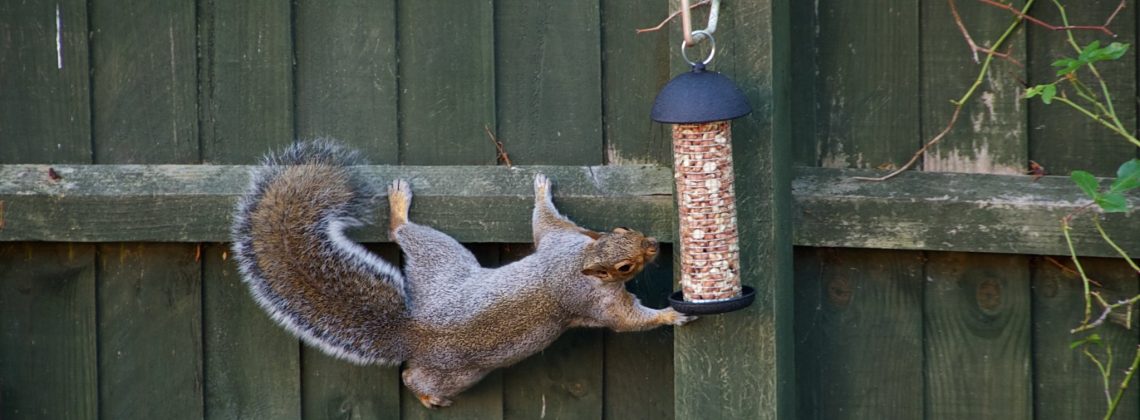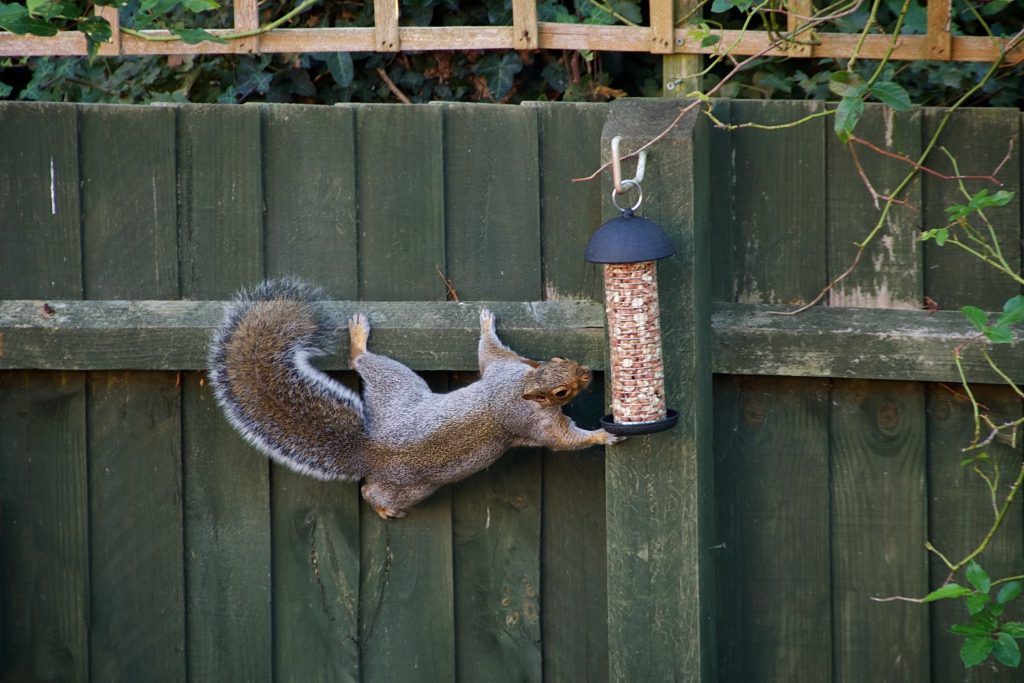

Tales from the frontline of interspecies conflict
I don’t remember when my mother’s war with the squirrels began. What I do recall is the campaign at its height. I also can’t remember the precise strategy she used, but it involved luring squirrels into a plastic garbage can and then putting the lid on it.
Even as a child, I realized that what happened next was slightly unhinged. Mom would put the kidnapped squirrel and me into our station wagon with the fake wood paneling and drive to the Forest Preserve nearest our Chicago suburb, where it would be forcibly deported.
I cannot even remember what her stated grievance against the squirrel kingdom was. When my wife and I first moved to our current home—also in a Chicago suburb—we had a neighbor with an unsettling avocation as a chipmunk assassin. His stated reason was that they were undermining the foundation of his house. I remember thinking to myself: If you live in a house that can be undermined by chipmunks, then you have bigger problems to deal with than chipmunks.
Looking back, I now realize that my mother’s war with the squirrels can be seen as an episode in a wider, intergenerational Appalachian feud. She had been raised dirt poor on the red dirt of northeastern Alabama. According to family lore, her father had spent several years of her childhood eating nothing but squirrel. His stated reason had been a mysterious stomach ailment that resulted in squirrel being the only food his digestive system could tolerate. My own theory is that this was a ruse to keep my mother’s rumbustious brothers occupied on a never-ending hunt.
Even stranger, I don’t recall when my war with the squirrels began. I now realize that it was a manifestation of an inherited prejudice, but that is not, of course, an excuse, only a bit of analysis. I do remember my own stated reason: They were raiding, sometimes even destroying, my birdfeeders. Let it be known—despite all advertisements to the contrary—that it is no mean feat to build a squirrel-proof birdfeeder. Lest you become unduly alarmed, let me be clear that this is not because squirrels are smarter than humans. It is merely a result of the fact that the goal of having a feeding station that birds can use and humans can conveniently view and stock is incompatible with the goal of it also being completely inaccessible to the most ingenious and persistent of squirrels.
As a faint tribute to generational progress, I never resorted to abduction, let alone killing. Rather, I confined myself to trying to whack them with a broom. My main efforts were on the side of strategic defense initiatives, as we continually upgraded to a bird feeder design that promised to solve the problem, only for the squirrels eventually to conquer.
When a wolf was terrorizing the people and livestock of Gubbio, St. Francis took up the cause of interspecies conflict resolution. The wolf had done wrong, he adjudicated, but his hunger and need for food were mitigating circumstances. The agreement the saint brokered was simple and effective: The wolf would desist from his attacks and the people would feed him. This once-loathed creature became such a beloved member of the community that, when he died, he was given a church burial.
I am no St. Francis, but all of us can strive to learn from the best. My war with the squirrels ended when it occurred to me to put a handful of birdseed on the ledge of our picture window every morning. Since then I too have witnessed a transformation that could grace the legends of the saints. My current birdfeeder is designed to be squirrel-proof, but I know the critters can crack it because they were doing so during the final campaign of the war. Yet not even once in the three years since our negotiated settlement have they attempted to raid it. Sometimes they climb right up to it in the way their elite fighting units used to, but they then just observe a moment of silence and leave respectfully in quiet reflection.
Still, unpleasant memories of the conflict linger on, causing both sides to remain wary. When they get too near my birdfeeder I still tense up and wonder where my broom is. The squirrels, for their part, still run away when I open the door. This, I admit, makes me sad. After all, you see people in parks feeding squirrels out of their hands, so such creaturely caution is not inevitable. My squirrels, moreover, learned in only a day or two that the huge cat that started showing up just millimeters away on the other side of the window could be brazenly ignored.
Why do they scurry off when I step outside, even when I am coming to give them food? Do they not realize that I’m feeding them? Trying to come up with a hypothesis that fits their behavior, I have sometimes wondered if they think I am putting out an offering for my ancestors which they are sacrilegiously stealing. But that theory does not account for their newfound reverence for the birdfeeder.
What I do know is that it gives me enormous pleasure every morning to have my breakfast with both the birds and the squirrels. I once watched a documentary that incidentally mentioned the passenger pigeon, an extinct bird once so common in America that flocks of it could darken the sky. Believe it or not (though St Francis would believe it): Although passenger pigeons were gone long before I was born, I now sometimes look up at a lonely sky and miss them.
My wife, who is English, recently shocked me with the news that the common house sparrow is in precipitous decline, even in her native land. The Royal Society for the Protection of Birds has identified it as a species of high conservation concern. Even Jesus name-checked the sparrow as a bird so mundane that most people don’t care about its fate. Now I try to imagine the loss of species whose plentitude has caused them to incur contempt, and thereby learn to experience their presence with wonder and gratitude. For me, Canadian geese are no longer an occupying army of bad-tempered pooping machines but mystical, winged creatures larger than any that future generations may routinely encounter.
And if I someday have grandchildren who are being raised in suburbs sans squirrels, how I will regale them with orations on this magical, cheeky, playful species with its exotic, beautiful, and highly expressive tail. Humans, alas, have the God-given freedom to do permanent harm in this world. But His eyes are on the sparrows, and I know He’s watching my squirrels too.
Timothy Larsen teaches at Wheaton College and is an Honorary Fellow at Edinburgh University. He is the author of John Stuart Mill: A Secular Life and the editor of The Oxford Handbook of Christmas.